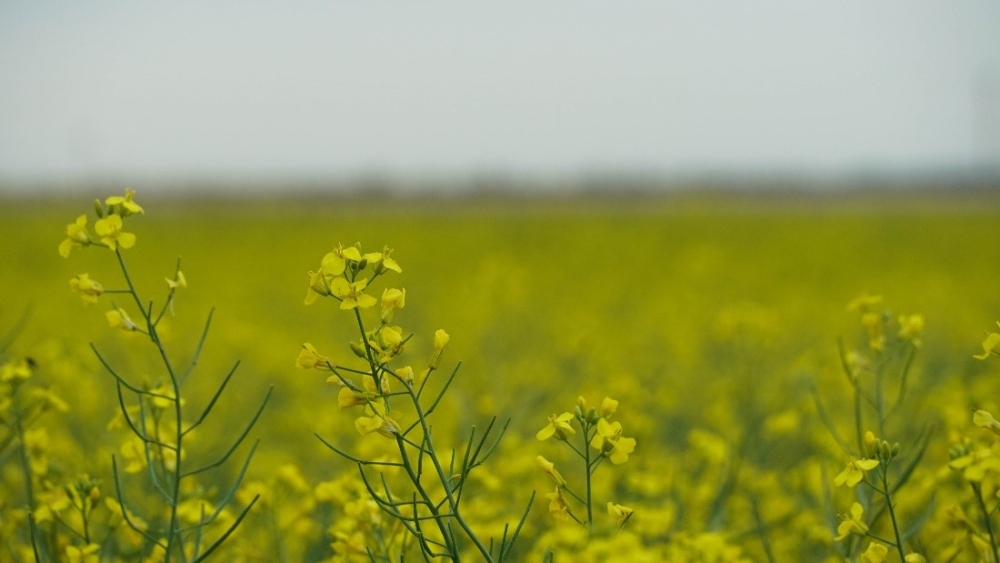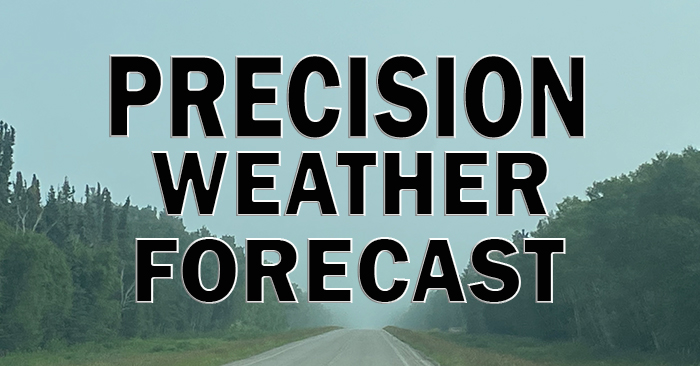A producer and farm leader in Saskatchewan, Jake Leguee, is optimistic for the future of farming in this province, through what he terms the “miracle of incremental progress”.
He laid out his thoughts on the farming industry at a meeting of the Weyburn Rotary Club on Thursday at the Weyburn Legion Hall.
He is a partner in a multi-generational farm in the Leguee family that primarily works land between Fillmore and Weyburn. He farms with his wife Stephanie, his sister Sarah, and brother-in-law Erik Nikolejsin.
The Leguee family farm won as the 2023 Saskatchewan Outstanding Young Farmers at Canada’s Farm Show in June of 2023, and Jake is involved as a farm leader in farm advocacy groups and he is the current chairman of the Saskatchewan Wheat Development Commission or Sask Wheat.
He came up with the idea of “the miracle of incremental progress” as he considered the misconception that great change only occurs through revolutionary achievements.
“That’s not really how it happens. It happens by evolution, the slow grind of the wheel of incremental progress. While you’re in it, you don’t see it, and that’s the story of my life, and it’s also the story of agriculture,” said Leguee.
Explaining about his family’s farm, he noted the family is in their fourth generation and have been on the same home quarter since 1956. They currently focus on growing wheat, durum, canola, flax and lentils.
The farm used to also raise cattle, but they got out of livestock in the late 2000s – a fact that Jake reflected on as he looked at an old aerial photo of their farmstead, compared to what the farm looks like today. He noted that compared to the old photo, they have since taken out the old corrals, planted some 1,000 trees in the year, and have added a shed and a number of grain bins, over the course of two decades.
This in part is where he came to the realization that they have achieved a lot on their farm, but it came very gradually, through a lot of hard work and experimentation that occasionally saw failures.
He graduated from university with an ag degree in 2010, but then the southeast was hit with major flooding in 2011, and it took a couple years for the farm to recover from that.
“We had a lot of challenges to get through that, and looking back, it was one of the best things that could’ve ever happened to us,” he said, noting his father Russ gave them some sage advice, including, “If things fail, don’t let it be your fault, but you should think about how do we make the best of it?”
Some things didn’t work, such as a plough to try and break up the hardpan that was left after all the water was gone, and cover cropping. All through this time, Russ’s voice was in the background as he mentored the three on how to run a successful farm operation.
As they looked back, there were little things here and there that worked, plus the family had to learn how to work together to solve things as they came up, and learn how to set reasonable goals and objectives. The importance of collaboration, and learning how to celebrate the little wins, is how a family learns how to help the farm to grow and succeed, he said, including how to use each of their strengths.
The ag industry has also had to grow like that, and this is why yields of crops have grown hugely, plus advances in plant breeding have helped increase productivity, and has allowed farmers to be able to feed the world gradually more and more.
Leguee noted they have established small seeded crops like flax and canola in areas where they couldn’t grow them before.
They’ve also learned that using sensory technology, they can delay making some decisions until June, when they know a lot more about yield potential than they do in May. One example is a soil moisture probe and weather station, where the probe is put three and a half feet into the ground, and it will give more accurate information about yield potential than anything they learn in May.
The other thing he’s learned is, incremental progress is not a given, as it’s not a guarantee everything they try will succeed, but producers should realize they’ve made a lot of progress in last couple of decades, and they will continue as they pay attention to science and education, and advocacy in agriculture.








